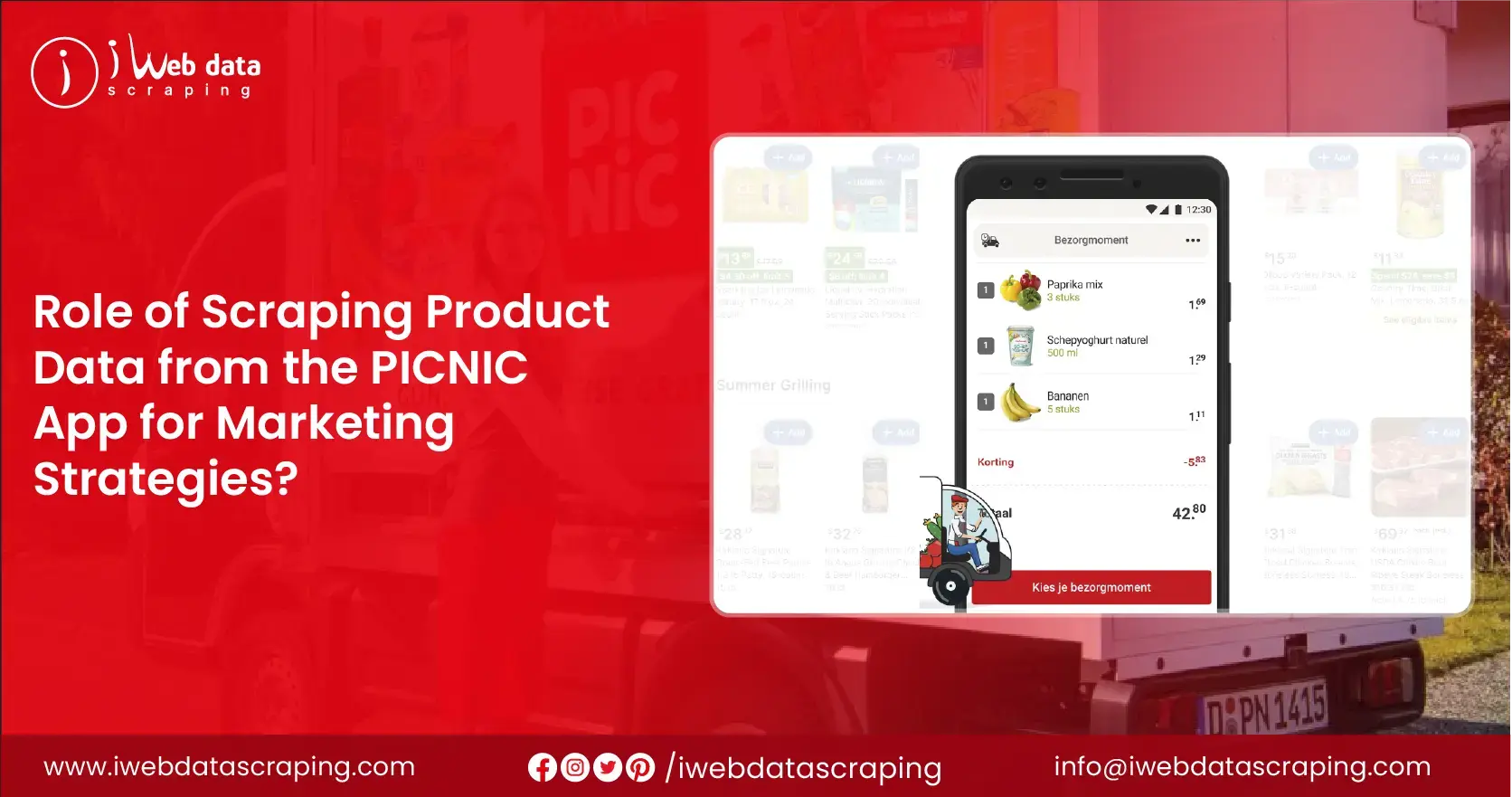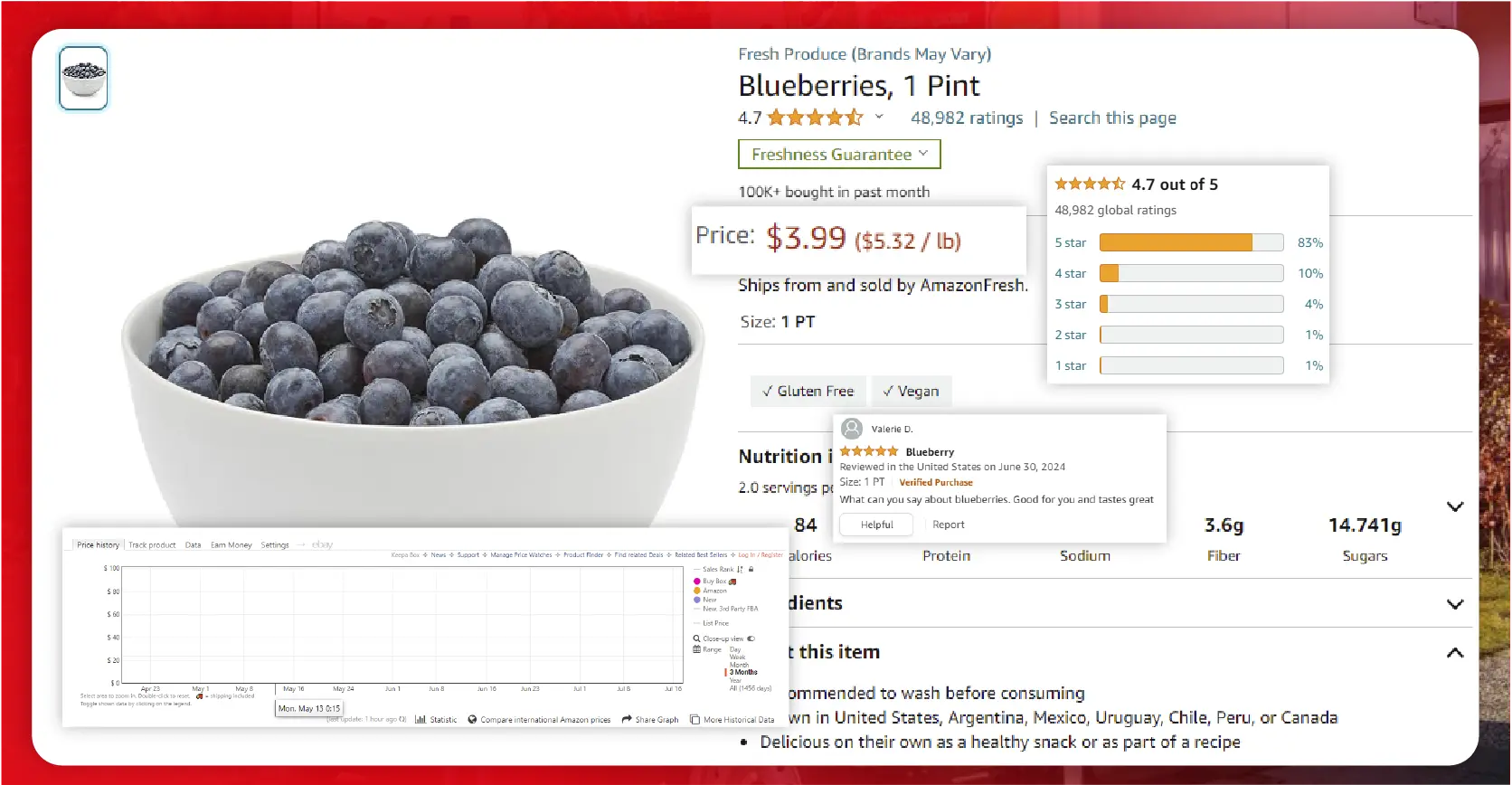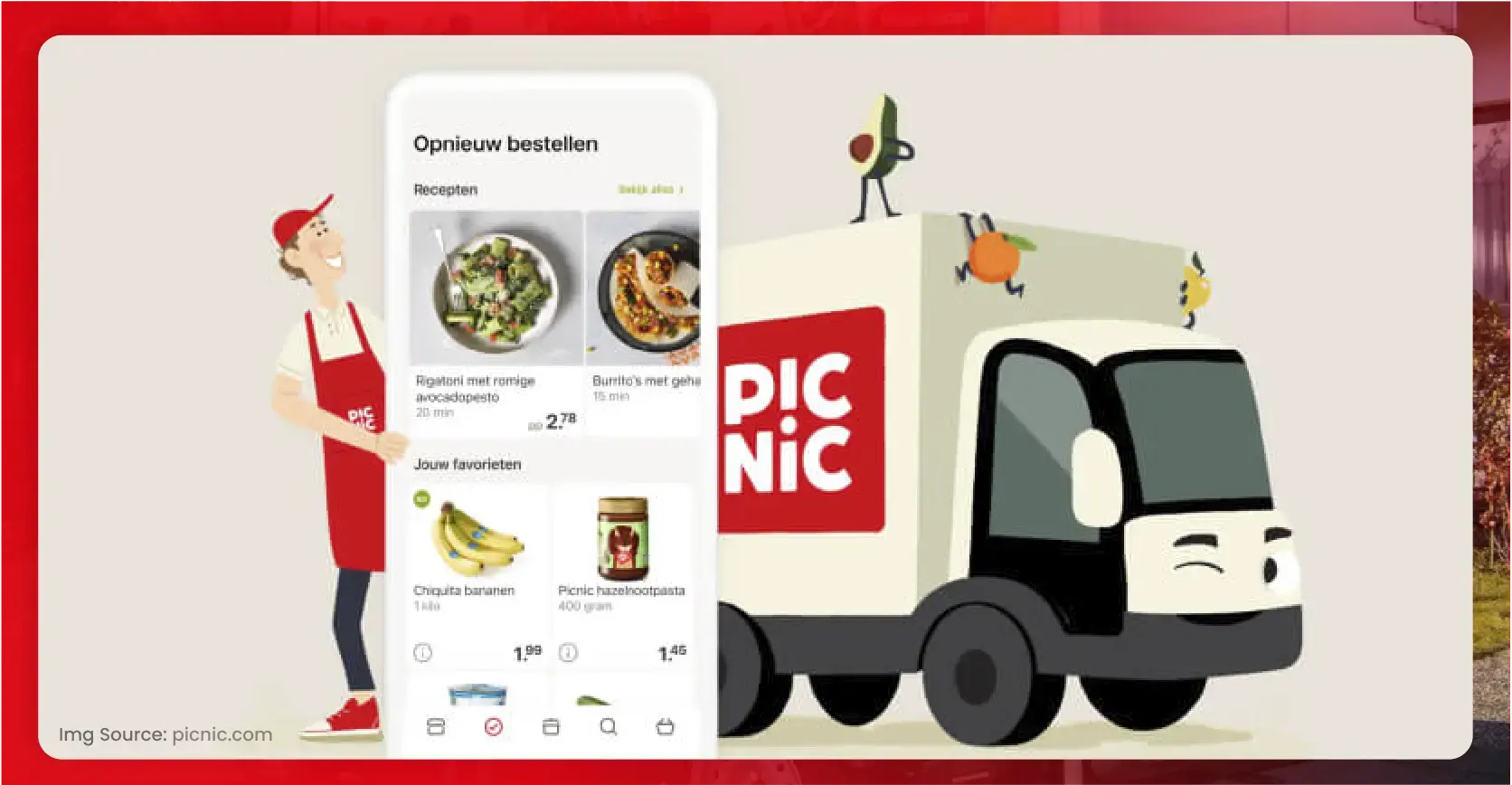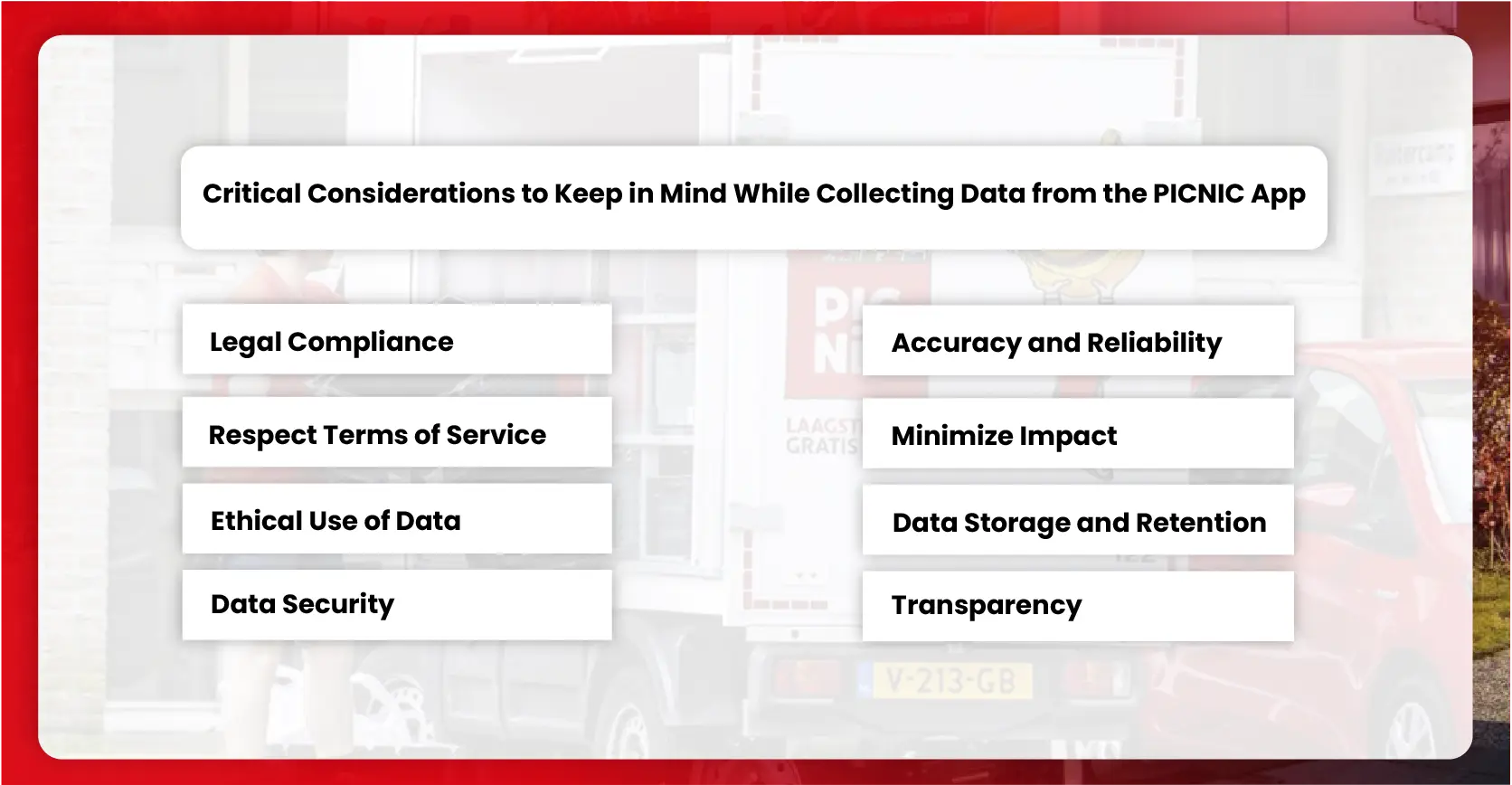

Grocery data scraping involves collecting valuable information from online grocery platforms, enabling businesses to analyze product availability, pricing trends, and consumer preferences. This practice is crucial for competitive analysis, market research, and inventory management in the grocery retail sector. One notable example is scraping product data from the PICNIC app, a popular grocery delivery service. By scraping PICNIC's app, businesses can gather insights into which products are in demand, monitor pricing fluctuations, and adjust their inventory levels accordingly. This data helps optimize supply chain operations and enhance customer satisfaction by ensuring product availability. Legal and ethical considerations are essential when scraping grocery data, including compliance with platform terms of service and data protection laws. Adhering to these guidelines ensures businesses conduct scraping activities responsibly, respect user privacy, and maintain positive platform relationships. Ultimately, grocery data scraping services empower retailers with actionable insights to stay competitive and meet evolving consumer demands in the digital marketplace.

By extracting the PICNIC grocery app, various types of data can be collected:
Collecting and analyzing data from the PICNIC grocery app can help businesses understand market dynamics, optimize inventory management, adjust pricing strategies, and enhance the overall customer experience in the grocery retail sector.

Scraping product data from the PICNIC app holds significant value for businesses, offering insights into market dynamics, competitive strategies, consumer behavior, and operational efficiencies crucial for informed decision-making and market leadership.
Regional Demand Insights: Grocery data scraping services reveal regional variations in product demand, allowing localized marketing and stocking strategies.
Seasonal Trends: Analysis of scraped data identifies seasonal buying patterns, enabling timely adjustments to inventory and promotional campaigns.
Supplier Performance: Monitoring supplier data from PICNIC helps evaluate supplier performance and negotiate better terms.
Customer Segmentation: Data segmentation based on demographic and behavioral insights enhances targeted marketing efforts and customer retention strategies.
Product Shelf Life Management: Access to expiration dates and product shelf life information supports effective inventory rotation and management.
Market Entry Strategy: Data from PICNIC aids in formulating market entry strategies by understanding market gaps and competitive positioning.
Regulatory Compliance: Collected data includes compliance information, ensuring products meet regulatory standards across different markets.
Predictive Analytics: Utilizing historical data for predictive analytics improves forecasting accuracy, reducing inventory holding costs and optimizing supply chain logistics.

An advanced grocery data scraper is pivotal in collecting comprehensive data from the PICNIC app, enabling businesses to gain strategic advantages in the competitive grocery market. This tool automates the extraction of diverse data points such as product details, pricing dynamics, availability statuses, customer reviews, and promotional offers from PICNIC's platform. By efficiently gathering this information, businesses can conduct in-depth market analysis, identifying trends, consumer preferences, and competitor strategies with precision.
Moreover, it enhances operational efficiency by providing real-time updates on inventory levels and product movements. This capability allows retailers to optimize stock management, minimize stockouts, and improve supply chain responsiveness. Pricing strategies can be fine-tuned based on scraped data insights, ensuring competitive pricing while maximizing profitability. Furthermore, the scraper facilitates targeted marketing initiatives by segmenting customers based on demographic data and purchasing behavior extracted from the app. Ultimately, leveraging an advanced grocery data extractor empowers businesses to make data-driven decisions, enhance customer satisfaction, and maintain a competitive edge in the dynamic grocery retail landscape.

When collecting data from the PICNIC app, several vital considerations are crucial to ensure effective and ethical data handling:
By considering these factors, businesses can effectively, responsibly, and in compliance with legal and ethical standards and collect data from the PICNIC app, leveraging insights for strategic decision-making and operational improvements.
Conclusion: Scraping product data from the PICNIC app offers businesses significant strategic advantages in grocery retail. Companies can optimize inventory management, refine pricing strategies, and launch targeted marketing campaigns by collecting and analyzing data such as product details, pricing, availability, and customer reviews. This practice enhances operational efficiency, improves customer satisfaction, and ensures competitive positioning. However, conducting data scraping ethically and legally is crucial, as well as adhering to data protection laws and platform terms of service to maintain trust and compliance. Ultimately, leveraging scraped data empowers businesses to make informed decisions and stay ahead in a dynamic market.
Discover unparalleled web scraping service and mobile app data scraping offered by iWeb Data Scraping. Our expert team specializes in diverse data sets, including retail store locations data scraping and more. Reach out to us today to explore how we can tailor our services to meet your project requirements, ensuring optimal efficiency and reliability for your data needs.